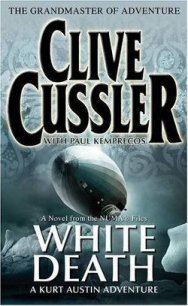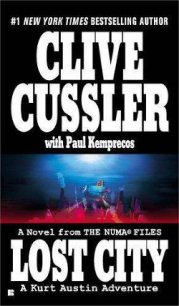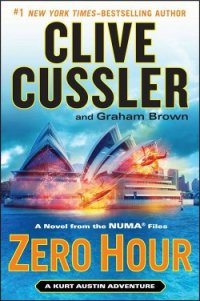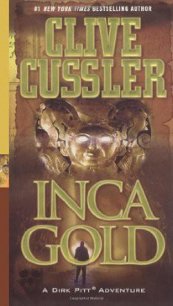The Navigator - Cussler Clive (читаем книги онлайн бесплатно полностью .TXT) 📗
Carina called directory assistance and asked for the main NUMA number. She was pleased when a real person answered the phone. Admiral Sandecker had hated automated voice mail, and NUMA was probably the only government agency in Washington that still used human telephone receptionists.
She left a message on Austin’s answering machine, saying that she was about to take a cab to Penn Station and would call from the train or when she arrived in Washington. She left the same message at the boathouse. If they couldn’t make contact, she would take a taxi to her hotel and wait for Austin to call.
As Carina made her phone calls, her every move was being watched from the front seat of a Yellow Cab parked near the museum’s main entrance.
Keeping his eyes glued to his target, the driver spoke into a hand radio.
“Picking up fare at the Met.”
Carina tucked the phone back into her purse and descended the stairs.
The taxi moved slowly forward, and the driver lit the roof sign switch to show that the cab was free. With precise timing, he stopped in front of Carina just as she reached the curb.
She couldn’t believe her good luck.
Carina opened the door and got in the backseat. “Where to, ma’am?” the driver said over his shoulder.
“Penn Station, please.”
The driver nodded and slid shut the plastic window divider that separated the front seat from the back. The cab pulled away and joined the busy traffic flow along Fifth Avenue. Carina gazed out the window at the street scene. New York was one of her favorite cities. She loved the city’s energy, its culture and power, and its endless variety in people.
Sometimes she worried about her lack of a home base. She was a child of Europe and Africa, with a foot on each continent. Paris was where she lived and worked, but she spent more time on the road than at home. She looked forward to staying at Austin’s boathouse again. She liked the fearless and handsome American, and envied the way he had balanced globe-trotting and home. She would have to talk to him about how he managed to achieve the best of both worlds.
Carina became aware of a sweet fragrance, as if a heavily perfumed woman had gotten into the car. The odor was making her giddy. She tried to open a window but the lever wouldn’t work. The smell had grown in strength. She felt as if she were being smothered. She slid across the seat and tried the other window lever. Stuck.
She was becoming dizzy. She would pass out if she didn’t get some fresh air. She knocked on the divider to get the driver’s attention. He didn’t respond. She glanced at the driver’s ID card and thought that the photograph didn’t match the driver’s face. Her heartbeat accelerated, and she broke into a cold sweat.
Must…get…out.
She pounded with her fists on the plastic window. The driver glanced in the rearview mirror. She could see his eyes. Uncaring. The reflection in the mirror began to blur.
Her arms seemed made of lead. She was unable to lift her fists. She stretched out on the backseat, closed her eyes, and passed out.
The cabdriver looked in the mirror again. Satisfied that Carina was unconscious, he flicked a switch on the dashboard to shut off the gas flow to the backseat. He turned off Fifth Avenue and drove toward the Hudson River.
Minutes later, he drove the taxi up to a guardhouse at the entrance to a fenced-off area. The guard waved him through to a helipad at the edge of the river. Two tough-faced men stood near a helicopter whose rotors spun at a lazy speed.
The taxi parked next to the helicopter. The men opened the doors to the backseat, extracted Carina’s limp body, and loaded her on the helicopter.
One man got into the pilot’s seat and the other sat next to Carina holding a canister, ready to administer another whiff of knockout gas if she started to regain consciousness.
The rotors began to spin into a blur. The helicopter lurched, then lifted off the pavement. Within moments, it was only a speck in the sky.
Chapter 38
“I AM HAPPY NO PLACE ELSE,” Gamay said, quoting from the guidebook. “Jefferson was unequivocal about his love for Monticello.”
“Do you blame him?” Paul pointed through the windshield toward the familiar columned portico and rotunda on a distant hill high above the green rolling Virginia countryside.
It had been at least a year since the Trouts had last visited Jefferson’s fabled retreat on one of the back-road motor treks they enjoyed in their Humvee. Paul usually drove. Gamay navigated and provided local color, drawing on a pile of guidebooks to recite little known facts. Ad nauseam.
“Aha!” Angela said.
Trout winced. Angela, who was sitting in the backseat, was proving to be Gamay’s equal in travel trivia. Since leaving Georgetown that morning, the two women had been taking turns reciting facts and factoids about Jefferson and Monticello.
“Too late,” Paul said in an attempt to cut the young woman off at the pass. “We’re here.”
“This is important,” Angela said. She had her nose buried in a thick paperback entitled The Life and Times of Thomas Jefferson. “This deals with the Jefferson material that was stolen on the riverboat trip to Monticello.”
Trout’s ears perked up. “Read on.”
Angela didn’t have to be prodded. “Jefferson is writing to his friend Dr. Benjamin Barton about the loss of his Indian vocabularies. Barton was a naturalist, and a member of the Philosophical Society. Jefferson calls the theft an ‘irreparable misfortune.’ Over thirty years, he had collected fifty Indian vocabularies, but had put off printing them because he hadn’t digested the stuff Lewis had collected. He thought some of the Indian words were common to Russian. He retrieved a few pages from the river, including some Pani Indian words Lewis collected, ‘and a little fragment of some other,’ which I see is in his handwriting, but no indication remains of what language it is.”
“I wonder if those fragments are similar to the words identified on the map as Phoenician,” Gamay said.
“Possible,” Paul said. “Maybe Jefferson wrote to Lewis and told him about the Phoenician words on the map. Lewis recognized the words as being similar to some other stuff he had collected in his travels but not given to Jefferson.”
“Why would he hold the material back?” Gamay said.
“He didn’t recognize their significance. After he got the missive from his old boss, he dropped everything and headed for Monticello with something he wanted to show Jefferson.”
“That means the map is quite significant,” Gamay said. “It makes the Phoenician connection, and shows the location of Ophir.”
“Tantalizing, but useless without more information,” Trout said with a shake of his head. “A compass rose. Measure of distance. Landmarks. Data like that would help.”
Angela opened her briefcase, rummaged through the Jefferson file, and pulled out the page with the squiggles, dots, and Phoenician words.
She waved the paper in the air. “We all agree that some of the details of the map are cut off,” she said.
“That’s right,” Paul said. “It appears to be part of a larger diagram.”
“If that’s true,” Gamay said with growing excitement, “it’s possible that what Lewis was carrying to Jefferson was the other half of the map. Lewis supposedly found a gold mine on his Pacific expedition.”
“Wow!” Angela said. “That means if our theory about the young slave holds true, Jefferson knew where the Ophir mine was.”
“Hold on a second,” Paul said with a grin. “We may have given you the wrong impression. Gamay and I tend to toss ideas around, but we can’t forget we’re scientists. That means we operate on the basis of fact. We’re making guesses based on assumptions that haven’t been proven.”
Angela looked crestfallen. Gamay tried to cheer the young researcher. “You’ll have to admit it’s an exciting suggestion, Paul, even with all the questions.”




